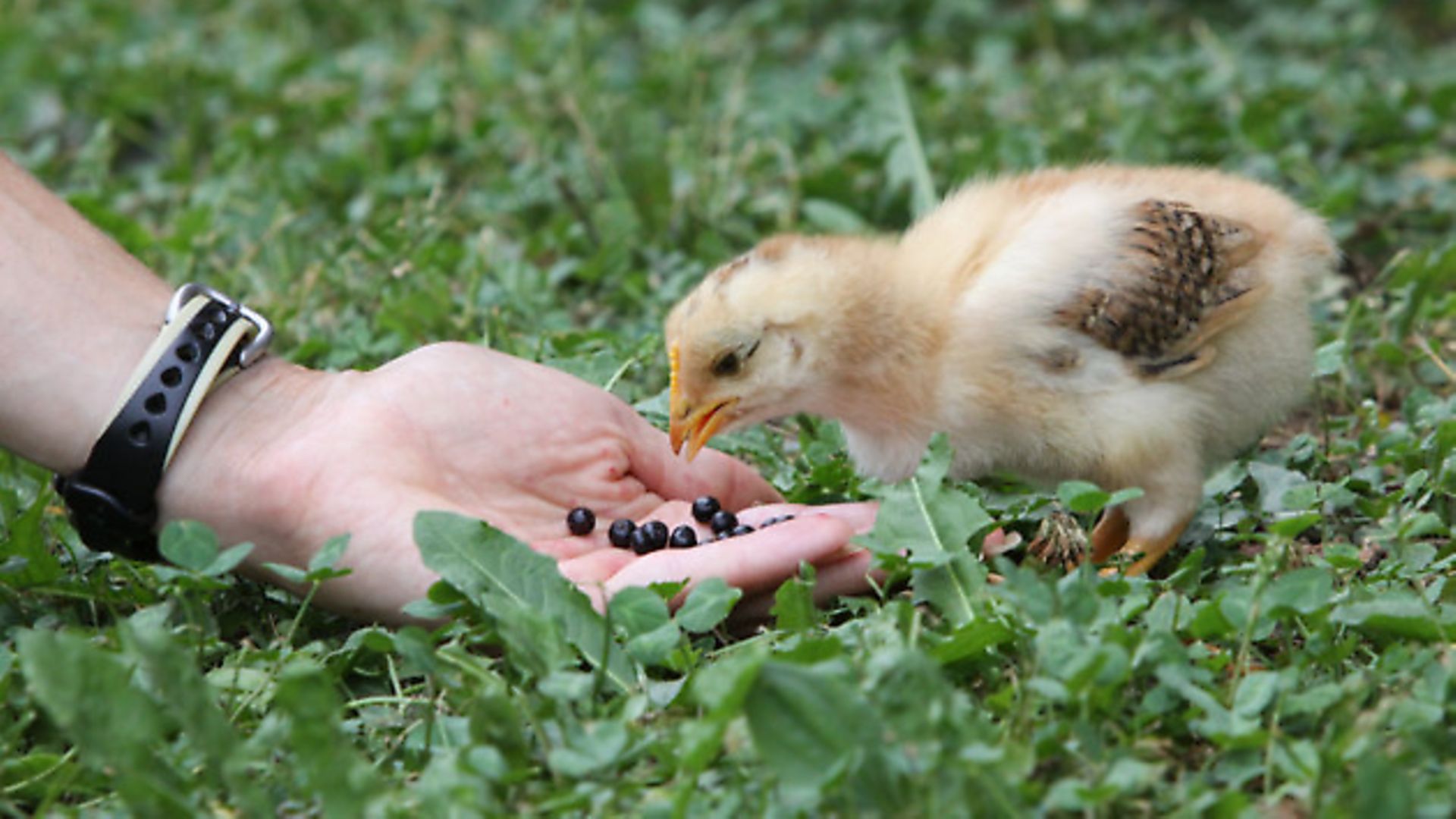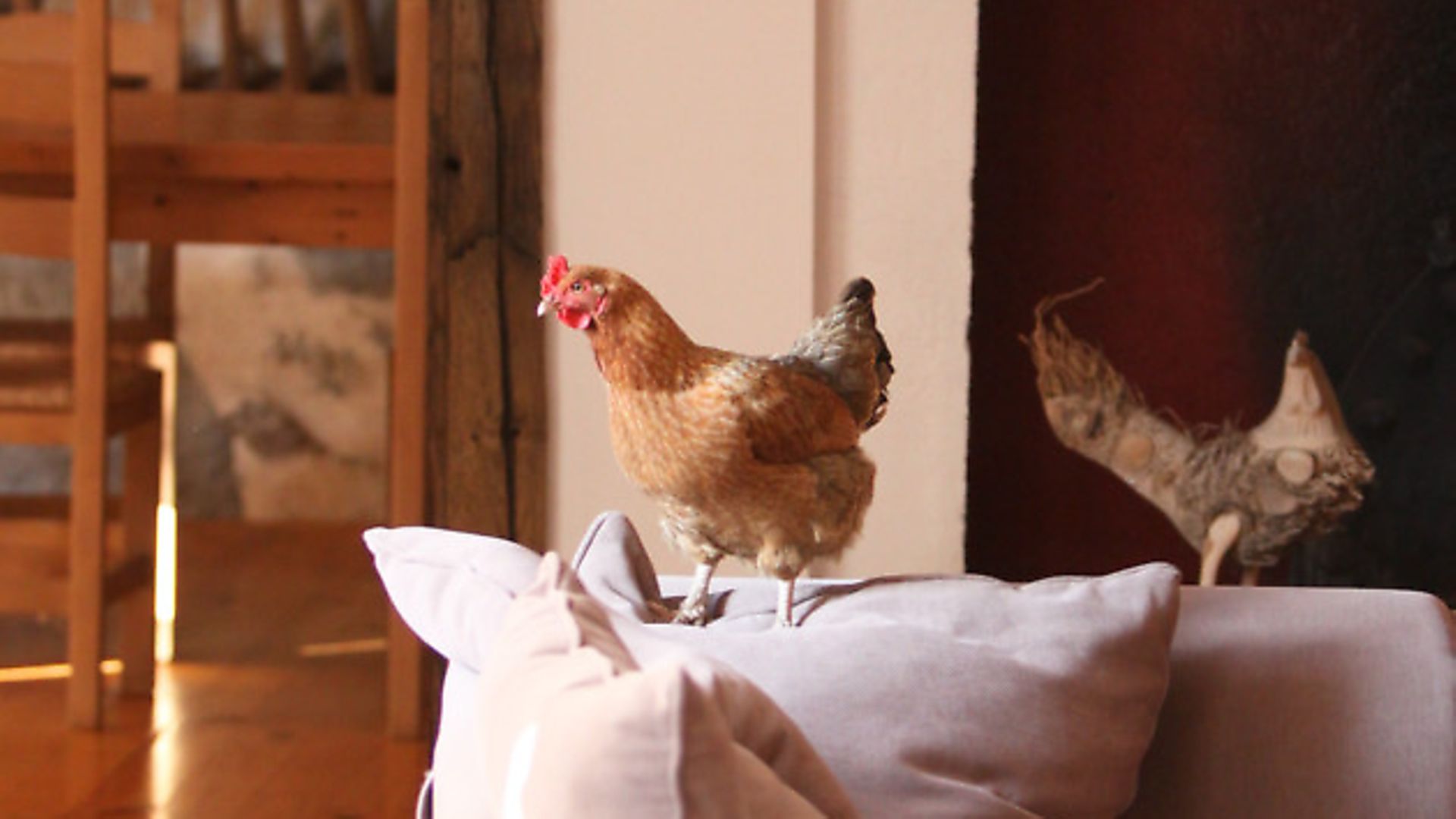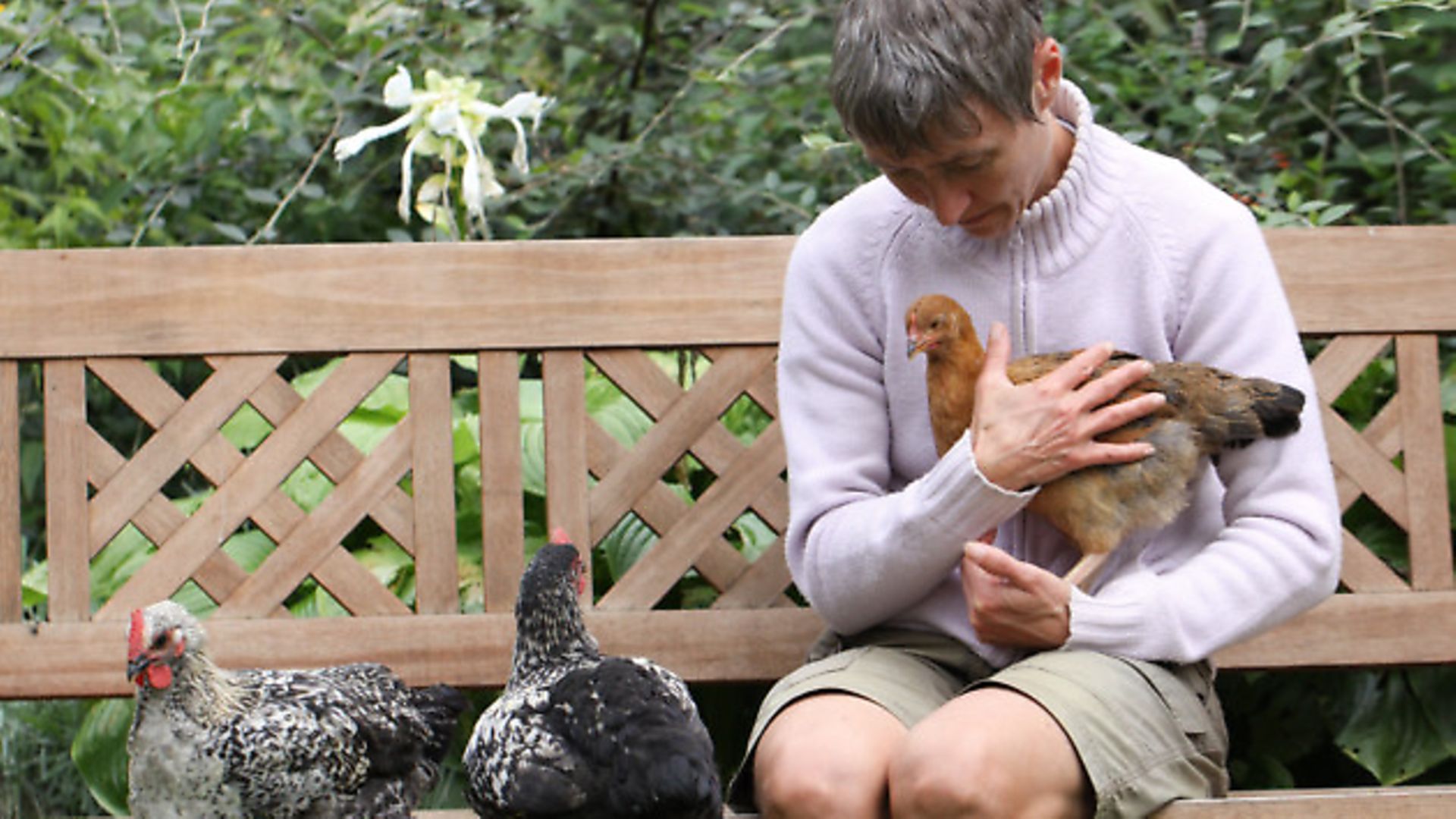There is an art to taming chicks and chickens. By doing so, you will find henkeeping so much more rewarding. Julie Moore shows you how

Have you ever wondered what it would be like to have your chickens come running to you when you call them instead of scurrying in the opposite direction at the sound of your footsteps? The good news is that time and plenty of patience is all that is needed to tame your flock.
Chickens, just like humans, have their own personalities and react to different things in different ways. You’ll find that some of your flock enjoy being handled, happily sitting on your lap, while others prefer to sit close by you whilst others are entirely aloof. One thing that you quickly learn is that chickens are far from stupid!
Investing time and a good deal of patience is key — just as Rome wasn’t built in a day, chickens cannot be tamed overnight. Let’s look at some of the ways to tame chickens.
First and foremost, you need to create an environment where your flock feels safe in your presence. As chickens are prey animals, you should never give them any reason to fear you. This means no chasing them or trying to catch them — this is what predators do. My birds all seem to have a sixth sense and instinctively know when I’m interested in them or talking about them to other people! Move slowly and predictably amongst your flock.

Choosing a good time of day to be with your flock is essential. Avoid ‘busy’ periods such as feeding time, the hour before roosting and mornings which are generally spent laying eggs. I find that early to mid-afternoon is the best time. Find somewhere where you can sit quietly in close proximity to your flock. I’ve found that sitting on the grass and being at their level works very well — in their eyes, you’re disarmed, having no legs to chase them and pose no threat.
Speak to your hens in a soft, calm tone so that they get used to your voice. Repeating certain words will allow their brains to connect those words with a safe environment.
You’ve probably realised that chickens love to eat! Your trump card in taming your flock is food. If you have food and your chickens see you as a walking food dispenser, you’ll generally be standing before a defeated foe!
Drop some treats at your feet and remain quiet and still. You should find that your hens will come over to investigate. Drop some more and talk quietly. Offer some treats in your hand to see if any will take the food.

By repeating this process daily, your hens will not only expect your visit but associate it with food. Try picking up a hen and gently place her in your lap, rewarding her with a treat. Over time, don’t be surprised if one or two hens start jumping on your lap to get the food, even if you have none.
I’ve found that taming chicks is the easiest of all. By the time a chick is three days old, it starts to experience fear. It’s therefore important to spend plenty of time with them during this fearless stage, talking calmly and softly to them. If you’re hatching using an incubator, don’t be surprised if the chicks think of you as Mother and imprint themselves on you. Always announce your arrival with a special call — they’ll soon recognise your voice.
Taming chicks that are hatched by a broody hen can be more challenging as you first need to win the trust of the broody. From experience, a first time broody tends to turn from a tame, good-natured hen into a ferocious monster all in the defence of her chicks, not allowing me anywhere near her or her chicks. The exception to this was a first time broody who herself was hatched under a broody that trusted me. In those instances where I am trusted, I can pick up the chicks from day one and speak softly to them, gently stroking them whilst the broody herself ‘talks’ to the chicks as though she is assuring them there is no danger.
A good deal of patience is required if you’re buying in new birds, particularly as you have no idea how the previous owner cared for them — you could be dealing with wild animals! Integrating them with your already tame flock helps enormously to settle them down. In time, just like your existing flock, they’ll come to expect your visits and treats.
Chicks tamed from hatch will be familiar with you and calm in your presence. The next step is to train them to respond to voice commands.
For a chick to be familiar with a given name, it needs to hear the name often. Spend just a few minutes with each chick individually each day, calling its name in a soft tone and offering food. After a few days, the chick should come running when she hears her name.
Tone of voice is also important when training chicks and adult birds alike, particularly if you want them to stop something that irritates you. A sharp loud call is universally understood amongst all animals and humans as a warning, proving that there is a common language available. Thinking in terms of basic emotions that you wish to portray such as danger, anxiety, love or contentment etc., before using body language or voice commands will help you communicate most effectively. For example, if you call a hen to come to you in an angry tone she will become confused.
It’s not just humans who communicate using emotions; your hens also use body language and tone of voice to express their own feelings. The cry of laying an egg has a very different tone to a danger call not to mention the fierce squawk and raising of feathers of a Mother Hen defending her chicks. Spending time with your flock will allow you to translate their behaviours and sounds so that you can communicate more effectively.
I’ve trained mature hens on a one-to-one basis not to walk on certain plants or enter the house threshold, simply by saying ‘No’ in a stern, scolding tone and moving the culprit along. The hens now understand the meaning of ‘No’ because they associate the word with a negative response and anticipate the next action.
Hens can be trained through actions too. I have a hen who loves to sit on me. She has learnt not to poo on me — if she does, I put her on the floor immediately which is something she doesn’t like. If she does need to relieve herself, she’ll wriggle and fly down of her own accord.
One of the main advantages of having a tame flock who are used to being handled is that it makes routine health checks so much easier to perform and is less stressful for you and your birds. They may not like it, but they will tolerate it.
Taming your flock is a two way relationship: you try to comprehend the behaviour of your hens through their actions, noises and responses whilst they analyse you. From observations, I’ve learned that food is not their only desire — once satisfied they look for company, social interactions and some even crave post-hatch experiences such as burying their heads underneath my arm as though it’s their mother’s wing and being cared for. With time and patience, you can help your girls to understand you better and develop a trusting bond between you both. There’s nothing better than being around tame chickens that come running when called.
Image(s) provided by:
Archant
Archant
Archant







